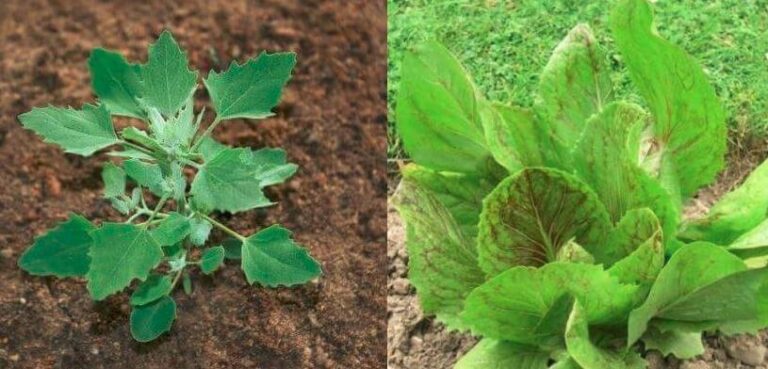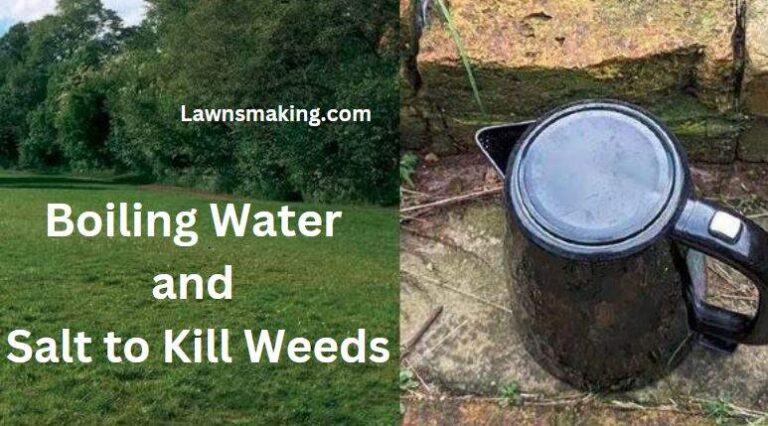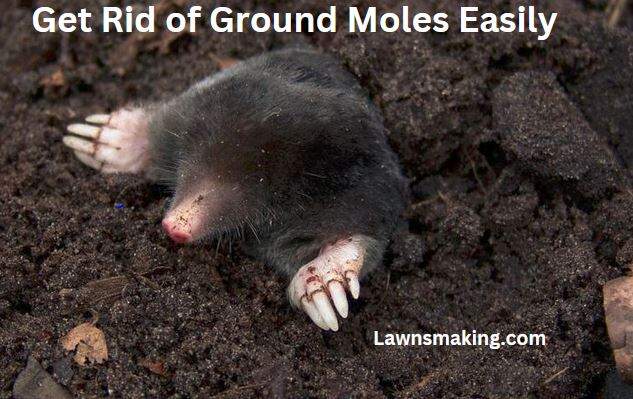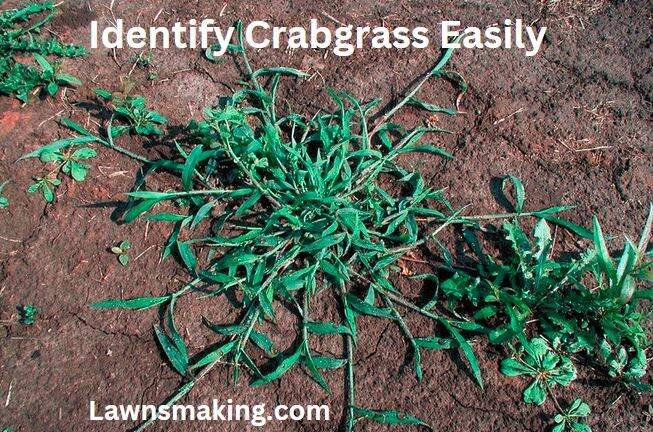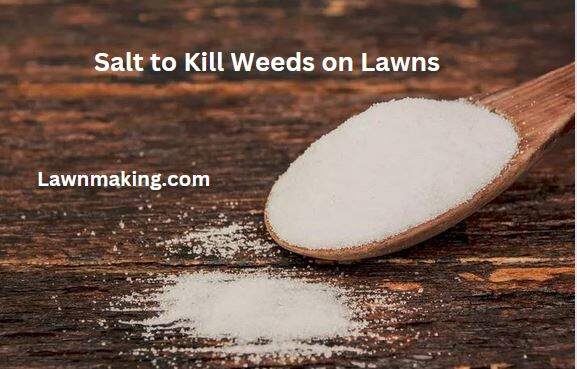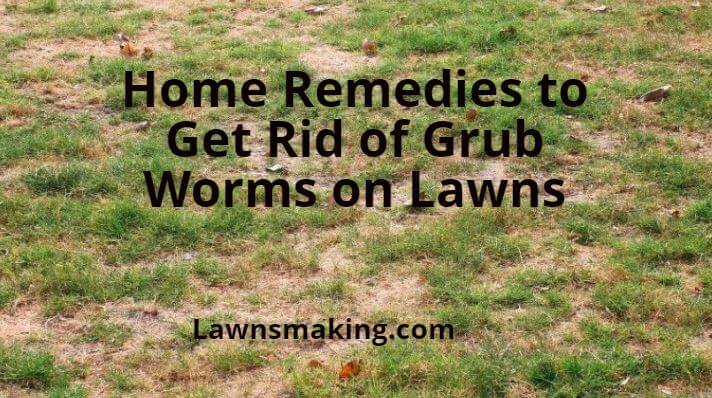
Are grub worms wreaking havoc on your lawn, causing unsightly damage? Dealing with grub infestations can be a homeowner’s worst nightmare, especially when you want to maintain a pesticide-free environment. With the catch-22, you might wonder, “Are there effective home remedies to get rid of grub worms on lawns naturally?”
You can get rid of grub worms on your lawn naturally by introducing beneficial nematodes, creating a bird-friendly yard, and using organic fertilizer. Homemade natural grub remedies help you reduce exposure to substances potentially harmful to humans, pets, and the ecosystem.
Chemical pesticides aren’t the only solution to combat grub worms. In this article, I explore a variety of natural alternatives, from the use of beneficial nematodes to coffee grounds. These homemade remedies can effectively rid your lawn of grubs while remaining gentle on ecosystems.
11 Effective Home Remedies to Get Rid of Grub Worms on Lawns Naturally Explained
Dealing with grub infestations is a common challenge. However, there are compelling reasons to explore natural and eco-friendly solutions, including the environmental impact of chemical pesticides.
With that said, here are 11 homemade remedies to deal with grub infestations naturally:
1. Beneficial Nematodes

Beneficial nematodes are microscopic, naturally occurring roundworms present in the soil. You can purchase these organisms and introduce them to your lawn to combat grub infestation.
According to the University of Massachusetts Amherst, beneficial nematodes are harmless to pets, beneficial plants, and humans, making them a safe and eco-friendly solution to grub infestation.
Due to their parasitic relationship with grubs, beneficial nematodes seek grub larvae in the soil and enter their bodies, releasing bacteria that kill grubs in a few days.
Mix beneficial nematodes with water—following the product’s instructions to guarantee effectiveness. Applying the nematode solution evenly using a watering can or sprayer over affected areas will also enhance its effectiveness against grubs.
Once in the soil, nematodes continue reproducing, maintaining a population actively seeking out new generations of grub larvae—providing a long-term solution.
2. Birds
Birds such as crows, starlings, and robins are natural grub predators. Creating a bird-friendly environment in your yard can encourage birds to help you with an ongoing grub infestation.
According to The Pennsylvania State University, a bird-friendly environment boasts bird feeders, birdbaths, and native plants that attract insects for the birds to feed on. Moreover, installing birdhouses and providing nesting sites can attract different bird species to help you hunt for grubs—reducing their population naturally.
Encouraging bird populations to visit and stay in your yard will also help you maintain a balanced ecosystem in your lawn and its surroundings, reducing or eliminating your reliance on chemical grub control methods. Here are ways to encourage birds to your yard;
- Install Bird Feeders
- Provide Fresh Water
- Plant Native Trees and Shrubs
- Create Bird-Friendly Landscaping
- Add Nesting Boxes
- Avoid Excessive Pesticide Use
3. Organic Fertilizer
Organic fertilizers, such as well-rotted manure or compost, enhance soil health by adding organic matter and essential nutrients. Healthy soil with elevated nutrient content and microbial activity is unattractive to grubs, as they prefer nutrient-deficient and compacted soils.
Spread the organic fertilizer in your lawn following recommended application rates, especially in the growing season, to promote healthy grass growth. Remember that healthy grass is naturally resilient to grub damage, making it less susceptible to infestations.
Additionally, organic fertilizers enhance beneficial microbial populations in the soil, creating competition for grubs while reducing their habitat.
Using organic fertilizers is a sustainable approach since they support long-term soil health and contain grub infestations by making the soil an unfavorable environment for them.
4. Dish Soap and Water
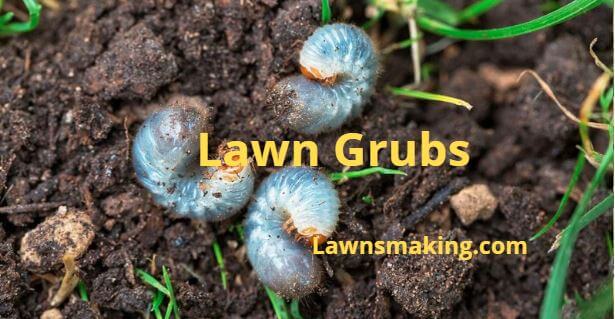
You will need liquid dish soap and water. Mix a few tablespoons of liquid dish soap with water to prepare the solution. You won’t need an exact ratio, but the solution should be soapy.
Apply the soapy water mixture to affected lawn areas. Use a watering can or sprayer for effective mixture application in places where you suspect grubs are present.
The soap suffocates and disrupts the waxy protective layer on grubs, killing them. Use this mixture in late spring or early summer for effective results when the grubs are in their early stages.
5. Molasses and Water
The main ingredients are molasses and water. For preparation, create a molasses solution by mixing one part molasses and ten parts water.
Apply the molasses solution to your lawn in areas where you suspect grub infestation. Use a watering can or sprayer to achieve even distribution.
The stickiness of molasses solution can trap grubs, making it difficult for them to move through the soil.
Please note the solution can act as a grub deterrence. However, it may not be as effective as using beneficial nematodes. Therefore, regular reapplication will be necessary until you get the desired results.
6. Vinegar and Water
You will need water and vinegar for the ingredients. Prepare the vinegar and water solution by mixing one part vinegar and ten parts water.
Spray the vinegar-water solution on your lawn, prioritizing areas suffering from grub infestation. The vinegar in the solution disrupts soil pH, making it less suitable for grubs.
While the vinegar-water solution can be an effective arsenal in your fight against grubs, it may also affect other soil organisms. Consequently, use it carefully and selectively.
The best time to use this solution is when grubs are most active, generally in early summer or late spring. Additionally, use vinegar sparingly to avoid harming your grass and other plants.
7. Essential Oils
Essential oils can act as a deterrent to grubs. Choose essential oils like cedar oil, neem oil, clove oil, or cedarwood oil. Moreover, according to University of Missouri, cedar oil and neem oil are grub deterrents.
Create an essential oil mixture by mixing a few drops of essential oil with water.
For an effective application, spray the effective oil solution on your lawn to repel grubs. Alternatively, use a watering can to apply the essential oil solution to your yard, especially if you are dealing with an expansive grub-infested area.
While the essential oil solution can be effective, you will need regular reapplication after rain.
Use the essential oil solution when grubs are most active to manage the infestation effectively.
Please avoid making highly concentrated essential oil solutions to mitigate harming other plants in your lawn.
8. Hot Pepper Spray
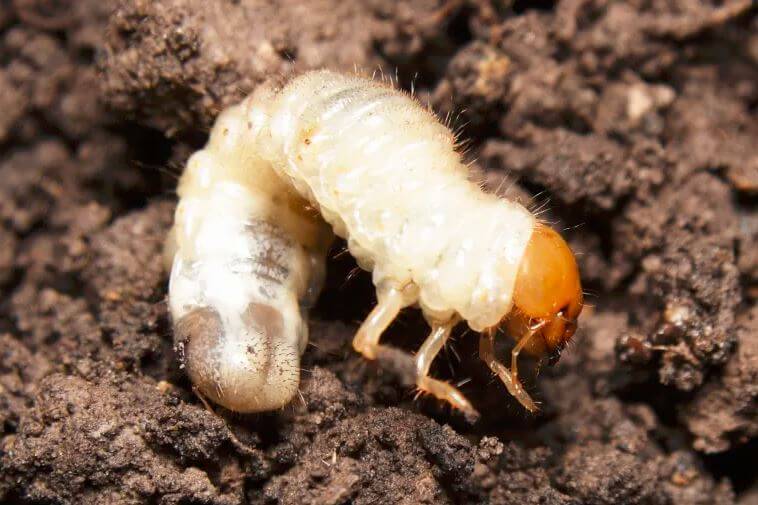
The ingredients for making this grub deterrent are hot peppers and water.
To prepare the deterrent, blend hot peppers with water and strain the mixture to create a spicy solution.
Use a spray to apply the hot pepper solution on your lawn. The solution’s pungent scent can deter grubs—reducing their prevalence in your yard. Moreover, grubs and other insects are sensitive to the spiciness of hot peppers.
Hot pepper sprays can be an effective way to deal with grubs. Nevertheless, reapplication is necessary after rain since rainwater will dilute and wash away the spicy solution.
Since the grubs are very active, late spring and early summer are ideal times to use hot pepper spray on your lawn.
Practice caution and wear gloves when handling hot peppers. Likewise, ensure the hot pepper doesn’t come into contact with your skin or eyes, which can result in irritation.
9. Epsom Salt
Epsom salt is another grub deterrent, and you can order it online if it is unavailable in your local gardening stores.
Besides acting as an effective grub deterrent, Epsom salt has soil-improvement properties since it contains nutrients such as sulfur and magnesium.
Epsom salt deters grubs by making the soil less hospitable to the annoying grass root feeders.
You can apply Epsom salt as needed; however, avoid excessive use, which can alter soil chemistry.
Grass and other plants in your lawn will benefit from improved nutrient availability, thanks to Epsom application.
Always water your lawn after sprinkling Epsom salt to help it dissolve and penetrate.
10. Beer Traps
You will need beer and containers for this grub homemade remedy.
Burry the containers (cups or shallow dishes) filled with beer in your lawn, and ensure the lip (the containers’ topmost end) is level with the soil surface.
Grubs are attracted to the scent of beer. Therefore, they will crawl in and drown in the liquid.
Empty and replace the beer traps regularly, as they may fill up or lose their effectiveness over time.
Using beer traps will help you manage grub infestation in designated lawn areas. Use beer traps in late spring when grubs are most active for best results.
Additionally, ensure the containers are leveled with the soil to avoid trapping other creatures.
11. Coffee Grounds
Use used coffee grounds, which are readily available from morning coffee brews.
Sprinkle the used coffee grounds evenly across your lawn to deter grubs. The used coffee grounds will also act as a natural soil conditioner—leaving your yard healthy.
Coffee grounds can help you deal with grub infestations. However, it is not an effective method for grub control.
Consider applying the coffee grounds regularly if you have a severe grub infestation. Besides enhancing soil aeration, coffee grounds also improve soil health by adding organic matter.
However, avoid using excessive coffee grounds, which can alter soil pH.
What Home Remedy Kills Grubs?
A soap-water mixture is a home remedy that kills grubs through suffocation by clogging their spiracles. The soap-water mixture also breaks down the cuticle, causing grubs to lose water rapidly, leading to dehydration and death.
Additionally, the soapy water disrupts their feeding and movement abilities, further weakening them. Regular application may be necessary for tackling an active infestation while ensuring you use a mild soap properly diluted to avoid harm to beneficial insects and plants.
What Is the Best Homemade Grub Killer?
Beneficial nematodes are the best homemade grub killers, as they efficiently target these lawn-damaging pests. Beneficial nematodes, when applied to your lawn, seek out grubs and penetrate their bodies, releasing bacteria that multiply and produce toxins, leading to the grub’s demise.
Using beneficial nematodes is an eco-friendly and sustainable biological control method, as it explicitly targets grubs while leaving other beneficial insects unharmed.
What Are Natural Enemies of Grubs?
Birds such as robins, crows, and starlings are natural enemies of grubs and can play a vital role in controlling grub populations by consuming them. Moles and skunks are also natural predators of these pests, but their digging can disrupt lawns.
Therefore, promoting a diverse and healthy ecosystem in your lawn or garden can encourage natural enemies like birds to thrive and assist in keeping grub populations in check.
Final Takeaways
As you strive for a lush, healthy lawn, remember that the battle against grub worms can be won without resorting to harsh chemicals. By exploring effective home remedies to get rid of grub worms on lawns naturally and choosing natural remedies, you’re protecting your yard and contributing to a safer, more eco-friendly environment.
With the knowledge and solutions in this article, from beneficial nematodes to soap and water mixtures, you can confidently take the reins in caring for your lawn, ensuring its beauty and vitality for years while maintaining your commitment to a pesticide-free yard.
